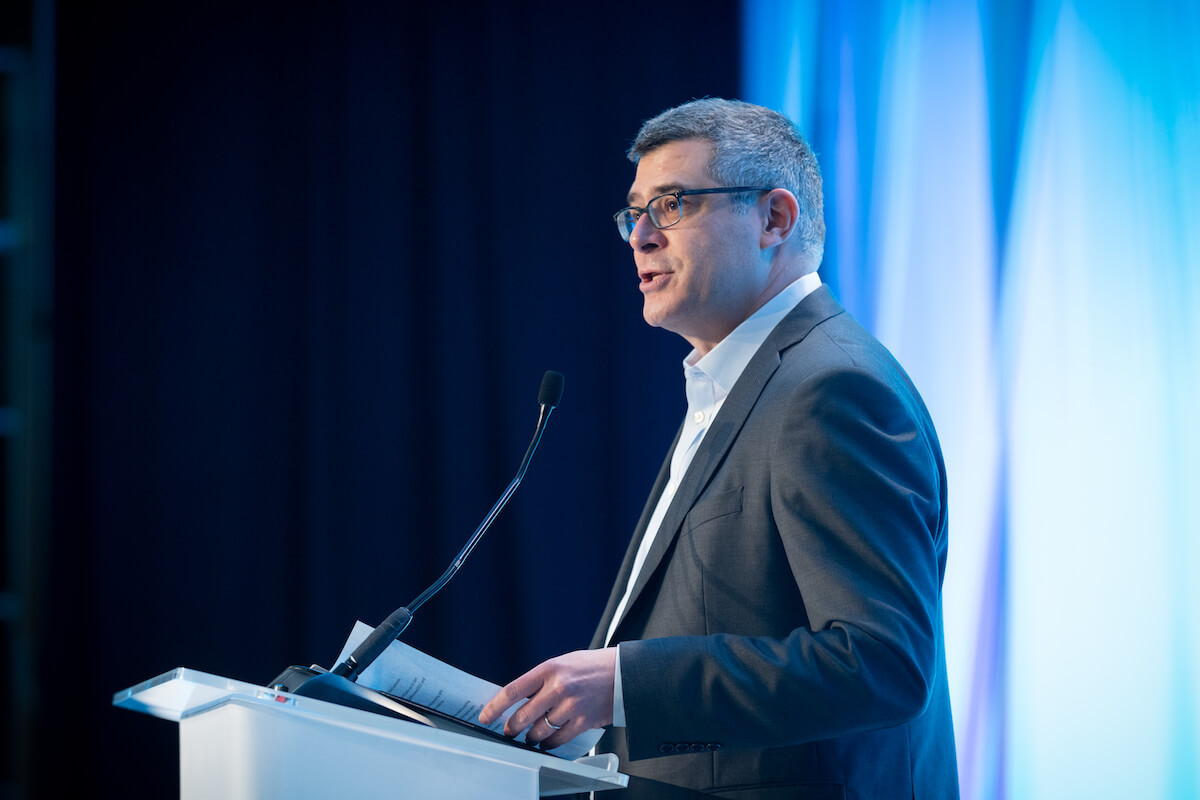This article is part of a partnership between ImpactAlpha and Mission Investors Exchange (MIE) to present new ideas and perspectives in impact investing. The MIE 2024 National Conference takes place May 7-9 in Los Angeles. If you are a foundation or other philanthropic asset owner, learn more about MIE and the National Conference here.
Launched in 2007, the W.K. Kellogg Foundation’s Mission-Driven Investment program reflects on its 17-year history of delivering more than $310 million to reach untapped markets and close the racial wealth gap. This milestone evaluation is being released today, exclusively in ImpactAlpha.
Our Mission-Driven Investment (MDI) program was created to leverage every available tool to deliver on our mission and harnesses the power of the capital markets to improve the lives of children.
Over time, our program has evolved across three distinct phases. The first phase focused on “exploration,” with the goal of learning, including through the creation of investment models to test different asset classes and structures. As the field of impact investing grew, our program entered the second phase, a period of “expansion,” which included growth in dedicated team capacity and infrastructure, enabling the W.K. Kellogg Foundation (WKKF) to diversify beyond highly liquid investments, such as deposits in minority-owned banks and increase exposure to private equity.
Beginning in 2017 and continuing today, the MDI program entered the third phase, a period of “institutionalization,” strengthening our team, enhancing our internal technologies and processes, and operationalizing our racial equity and impact investment lens. Since inception, we have made more than $310 million in commitments through mission-related investments (MRIs) targeting market rates of return that seek to scale and build models for institutional investors and more flexible, catalytic program-related investments (PRIs).
To learn from our work to date, we engaged Tideline, an independent and specialized consulting firm, to help us evaluate the program. This milestone report includes an evaluation of the MDI program and more importantly, recommendations for how to strengthen and reinforce our investment platform going forward. Our focus for the evaluation was on a five-year period (2017-2021), reflecting our current strategic focus.
What we learned
There are several important – and very intentional – elements of our strategy that we’d like to highlight:
First is our very central focus on racial equity. In all our investments, we require a clear pathway to advancing racial equity:
- We use a variety of levers, but we are always thinking about how to drive transformational change in our capital markets by directing capital to underserved communities and by addressing the misperception of risk. This focus is reflected in the fact that 91% of our commitments (2017-2021) went to communities of color and 60% to diverse managers or owners.
- Example manager: VamosVentures, a California-based venture capital fund with 100% diverse led (86% Latinx-led, 41% women-led, 52% first gen-led, 31% immigrant-led) portfolio companies. Of these companies, 75% deliver positive social impact through their core products and services.
A second key element of our strategy is our focus on market-building:
- We want to help grow the practice of impact investing by backing new industries and business models. One way we do this is by backing new fund managers. We invested $46 million (or 43% of $106 million total invested during the 5-year period) in first- or second-time fund managers.
- Example manager: Harlem Capital Partners, invests in underrepresented entrepreneurs, with a goal of reaching 1,000 diverse founders over 20 years. Currently, 91% of its portfolio companies are led by women and people of color. Sixty-one percent of its founders are Black or Latinx, and 43% are women.
Thirdly, we make sure we are well-aligned with the foundation’s programmatic areas:
- In fact, all our recent investments have aligned with our program strategy, including 75% ($79 million) in job access and enterprise development.
- Example manager: Founder’s First Capital Partners, provides underrepresented founders with revenue-based financing (RBF) and access to accelerator programs. Founders who take an RBF investment see revenue increase by 92% on average and 65% of companies participating in Founders First accelerator and coaching programs saw increased revenues, with an average revenue increase of 25%.
Opportunities for strengthening our investment platform
A fundamental goal of this evaluation was to identify how the foundation could strengthen its practice. To this end, the following elements represent areas of the most immediate opportunity:
Enhance impact management and measurement:
- Developing a distinct impact assessment framework for our impact investing program – versus the programmatically aligned framework we have used to date – would introduce MDI-specific taxonomy to articulate specific strategic goals for each investment.
- Additionally, WKKF provides several forms of value-add contributions tailored to each investee’s needs (differentiated capital, network building, strategic communications support and more). To strengthen these initiatives, we could adopt a “contribution framework” that would formalize strategies for enhancing impact, track value creation activities and incorporate feedback from managers and founders.
- And while we maintain flexibility around data, identifying a more targeted set of core KPIs will help with aggregation and monitoring going forward.
Expand market Influence
- Knowledge sharing is a key value of our foundation, and we believe, critical to strengthening efficacy, accountability and performance in the field of impact investing. To this end, our mission-driven investments program will continue to leverage its learnings (like WKKF’s seminal Business Case for Racial Equity report) to address racial bias across the industry and further demonstrate that racial equity investing yields both outsized returns and exceptional impact.
Strengthen operationalization
- There are several ways for the foundation to improve operational efficiencies. For example, our data has been situated across multiple platforms instead of aggregated in a single environment for seamless monitoring.
- Additionally, WKKF’s legal, investment and impact review process can be rigorous and resource- and time-intensive. Ensuring appropriate rigor in our investment practice and enhancing efficiencies to reduce the burden on prospective and existing investees is essential. This can be achieved through streamlining our decision-making processes and timelines and being extra judicious in the use of more complex investment structures.
Looking ahead
While there’s still much opportunity for growth, we believe – as this report highlights – that our strategic balance of being focused on close programmatic alignment as well as field building is an approach worth highlighting in the field. It has worked well for us – allowing us to lean into our racial equity focus directly on all our investments.
From a financial performance perspective, since the program’s founding, we’ve met our target return of 4-6% IRR across the MRI portfolio (this target has changed since the evaluation period). And we are pleased to report that our target investments have led to even stronger performance, generating an 11% IRR over the evaluation period (2017 to 2021) driven by venture and private equity returns. PRIs, which take on more risk and have higher expected impact were valued at approximately invested capital over this same period, aligned with our expectations.
In this next stage of our program, we’ll continue to refine our investment lens in concert with our goals as a foundation, ensuring all children can grow up in healthy environments and have equitable access to opportunity. To this end, we will continue to seek investments that serve and support under-resourced and unrepresented communities.
We are incorporating more rigor into our impact measurement and management, and streamlining our investment and operations processes to be less burdensome. Looking ahead, we’ll build upon what we’ve learned over the years, expand our investments across more asset classes and share our learnings with the field to promote greater efficacy, fidelity and social impact.
Cynthia Muller is Director of Mission Investment at the W.K. Kellogg Foundation.











